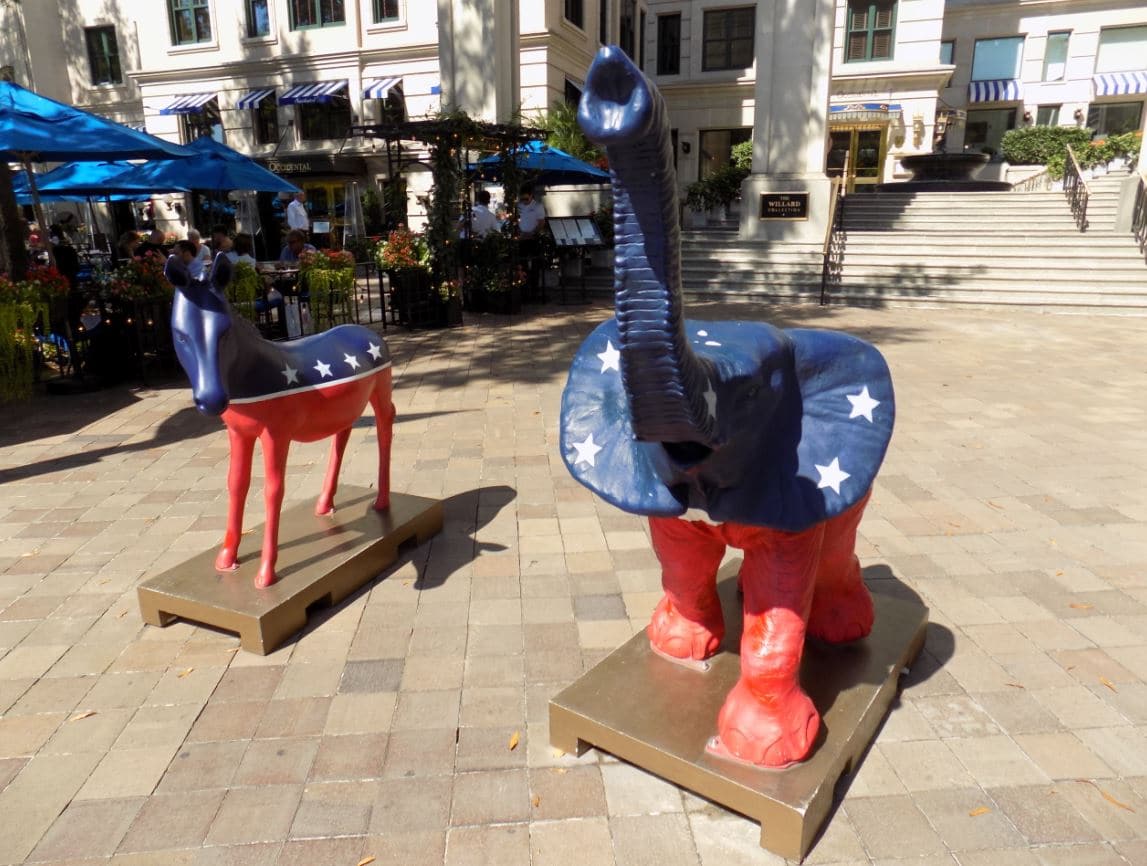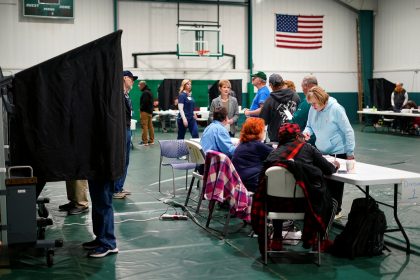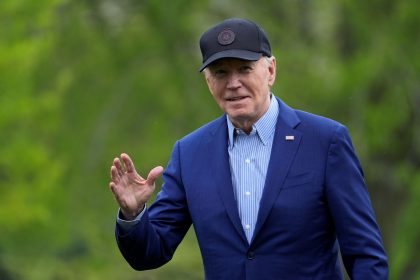The 2024 Republican Convention Delegate Process Explained

WASHINGTON — Although most of us focus on the candidates running for president, in reality, the primaries and caucuses in which we vote are a process of selecting delegates in each state to send to their party’s national presidential nominating convention.
Once at those conventions, delegates cast their vote for a particular candidate based on the preferences of the voters in the state they represent.
Despite the importance of the convention, the actual rules that cover delegate selection and behavior are obscure even to seasoned political watchers.
In this, the first of a two-part series, The Well News takes a look at the Republican Party’s presidential nominating process. It is based on material prepared by the Republican National Committee.
RELATED READ | The 2024 Democratic Convention Delegate Process Explained
The GOP expects roughly 2,469 delegates to be on hand when the party convenes its nominating convention in Milwaukee, Wisconsin, in July.
Of those, 2,365 will be bound delegates and 104 will be unpledged delegates.
The rules for awarding delegates and securing the nomination are in two key documents, the Rules of the Republican Party and the call to the convention.
To win the Republican presidential nomination, a candidate will have to receive the support from a simple majority of these delegates — in other words, about 1,235 of them.
How Does One Get to Be a Republican Delegate?
The Republican Party selects the delegates to its national nominating convention in a number of ways.
Some are selected through elections. Others are chosen by the GOP state committee, or at state or congressional district level conventions.
Finally, some are picked simply because they hold a leadership position within the state Republican Party.
Regardless of how they are chosen, the party then uses one of essentially three methods to “bind” them to vote for a specific candidate on the first ballot at the convention.
The most straight-forward way the party allocates its delegates is through winner-take-all contests during the primaries and caucuses, meaning the top candidate in a state’s contest gets all of that state’s delegates.
Another popular method is to allocate delegates to candidates on a proportional basis, based on the statewide vote. Some states use a variation of this method, allocating so-called “at-large” delegates proportionally based on the statewide vote and having its congressional district delegates allocated proportionally based on the vote in that specific district.
Republican rules this year generally require that states with primaries and caucuses before March 15 apportion delegates proportionally. States with primaries and caucuses after March 15 may switch to a winner-take-all format.
Still another method of allocating delegates is a “hybrid” approach that combines the methods described above.
Some states, for example, award at-large delegates on a winner-take-all basis according to the statewide vote and congressional district delegates on a winner-take-all basis according to the vote within the specific districts.
Finally, states directly elect delegates, who are usually bound to a particular candidate on the ballot.
Notice the use of the words “bound” and “bind” here; they are the preferred phraseology of the GOP. Democrats, meanwhile, prefer to use the word “pledged” when describing their delegate allocation.
Another important thing to note is that while the Democratic National Committee is more or less a top-down organization, Republicans like to say their party is governed from the bottom-up, with state committees and state lawmakers having the main say in how things are done.
As a result, slight variations on each approach to allocation abound. For instance, some states have set a threshold, above which a candidate receives all of its delegates.
These “proportional with trigger” states follow the proportional rules for the allocation of delegates, but allow for a winner-take-all allocation if any single candidate garners more than 50% of the vote statewide and/or at the congressional district level.
In Texas in 2024, another variation will be in use. According to the rules adopted by Lone Star State Republicans, the majority of the state’s GOP delegates will be allocated through the state’s presidential primary preference vote, while a portion of at-large delegates — about 25% of the entire delegation — will be selected by the state committee itself.
When it comes to the allocation of delegates, no decision this election cycle has been more controversial than the California GOP’s adoption of a new rule stating that any Republican presidential candidate who receives over 50% of the vote in the March 5 primary will win all 169 of the state’s delegates.
If no one reaches the majority threshold, delegates will be awarded proportionally based on the statewide vote, the party said.
Previously in California delegates were allocated by congressional district, a system meant to encourage candidate participation in the contest by allowing them to strategically target specific areas rather than campaign and advertise across the state’s expensive media markets.
Critics of the move claimed it was made only to benefit former President Donald Trump’s campaign, and to harm his opponents. By October they appeared to be right when Never Back Down, the pro-DeSantis super PAC, abandoned its door-knocking operation in California.
Bound delegates are those who are bound to vote on at least the first ballot at the national convention based on the results of their states’ primary, caucus or state convention.
The exception to the rule occurs in states where delegates and alternates are directly elected by voters with the expectation that they will be bound to a specific candidate.
What Kind of Delegate Am I?
There are four kinds of bound delegates who will be showing up at Milwaukee’s Fiserv Forum on July 15, primed and ready to select the Republican nominee for president.
Bound at-large delegates are elected and allocated statewide. The National Republican Committee assigns a total of 10 at-large delegates to each state — effectively, five at-large delegates for each U.S. senator.
Jurisdictions that don’t have a constitutionally-elected representative in Congress — districts and U.S. territories — also have at-large delegates.
Of these, the largest contingents will belong to Puerto Rico, which has 20 at-large delegates, and the District of Columbia, which has 16.
American Samoa, Guam, the Northern Mariana Islands and the Virgin Islands all have six at-large delegates.
Bound district delegates are elected and allocated at the congressional district level, with the RNC assigning three district-level delegates to each congressional district. Each state gets three district delegates for each of its congressional districts as established by the 2020 census.
Next come the bound party leaders from each state and territory. Typically these include a state’s national committeeman, a state’s national committeewoman and the state party chair.
Then there are the “bonus” bound delegates. These are delegates assigned to states whose electoral votes went to the Republican nominee in the last presidential election.
Bonus bound delegates are also awarded to states that have a Republican governor or those in which Republicans make up at least half of the congressional delegation or have a Republican U.S. senator.
Also eligible to receive bonus bound delegates are states in which Republicans hold a majority in one or both of its legislative chambers.
There is also a category of unbound delegates. These delegates are not bound by the results of state primaries or caucuses and can vote for anyone they want.
States that have unbound delegates this year are Pennsylvania, New Mexico and South Dakota.
Moving Towards the Convention
According to The Green Papers, a website that tracks the outcomes of United States presidential elections, and is an excellent source of information on delegates and their allocation, two jurisdictions have been penalized for holding elections or allocating delegates outside the prescribed timetable.
These include New Jersey, which has seen its delegate count reduced from a total of 49 to just 12, consisting of nine at-large delegates and three RNC members.
The other is the Virgin Islands which had nine — six at-large and three party delegates — but saw that reduced to four, one at-large delegate and three party delegates.
As in previous election cycles, states and territories have no mechanism by which to appeal any sanctions imposed on them.
The Republican Party has clarified its nomination requirements this year. Rule 40(b) requires that a candidate for the Republican nomination for president be able to demonstrate support from a majority of delegates in at least five individual states in order to have his or her name placed on the nominating ballot at the Republican National Convention.
While the rule appears noncontroversial on its face, it was a major point of contention ahead of the 2016 Republican National Convention in Cleveland, Ohio.
At the time the rule required candidates to demonstrate the support of a majority of the delegates from at least eight states — a bar that effectively meant Donald Trump was the only candidate eligible to be officially nominated to be the GOP candidate.
It also meant that Sen. Ted Cruz, R-Texas, who had won the majority of bound delegates in seven states, was barred from securing the nomination and that Trump opponents inside the party had no way of opposing him and putting up an alternative candidate.
At the time, talk of a contested convention was rife, and the campaigns of Trump, Cruz and former Ohio Gov. John Kasich, had formed teams to work on electing delegates that would support their candidate if a free-for-all broke out on the convention floor.
The controversy was resolved during the party rules committee meeting ahead of the convention by Steve King, a longtime stalwart of Wisconsin GOP politics and former U.S. ambassador to the Czech Republic.
King proposed returning the threshold back to “five states” beginning with the 2020 nominating season, and changing the language of the rule for the 2016 convention to say candidates only needed to show support of a “plurality” rather than a “majority” of the delegates in the eight states needed to be nominated.
Dan can be reached at [email protected] and at https://twitter.com/DanMcCue
























